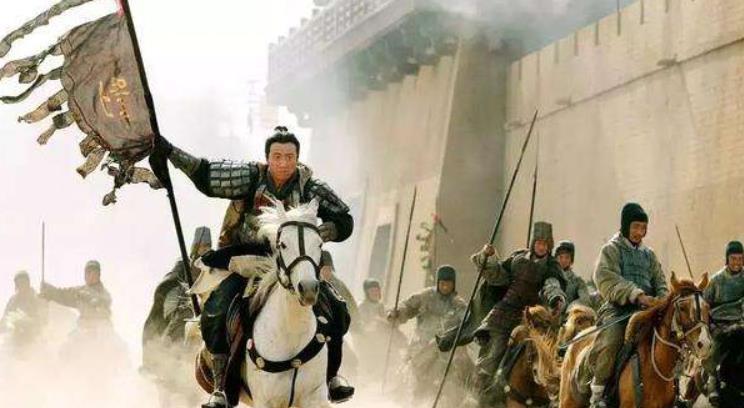As we all know, since ancient times, there has been a commander-in-chief in a war, taking the lead in the front, encouraging the soldiers, giving orders, the people below are willing to work hard, and the soldiers only listen to him, so whether a war can be successful or not depends on whether the commander-in-chief's decisions are effective. However, generally those who can serve as commanders have a long period of combat experience, know how to give full play to the advantages of the troops to win the other side in the war, and can also minimize the losses under the weighing of advantages and disadvantages, which makes the soldiers full of confidence in this war and will not be scattered.

However, war and peace are incomparable, in such a chaotic situation, the intensity of information transmission will certainly drop a lot, just like in our usual work, the leader gives us what tasks, we sometimes accidentally understand the wrong meaning, or the leader itself issued the wrong order, not only in the work, in fact, in the war, there are also superiors to pass on the wrong orders, or subordinates to the superior's orders misunderstood, this situation is also often happening. However, if you accidentally listen to the wrong order when you are working, you will be scolded, but if you hear it wrong on the battlefield, it may cause casualties and lose the war, which is very serious.
But in fact, in the past there were really a lot of related stories happening, everyone knows Qi Jiguang, as a famous general of the Ming Dynasty, he had a son named Qi Yin, when Qi Yin was ready to go to war, his father had been telling him not to rush to win, to pretend to lose this war first, and then trick the enemy into coming to the outside of Xianju City, leading the troops to counterattack, at this time you can force those Wokou to shoot, can be very good all wiped out.
However, as soon as Qi Yin went to the battlefield, he was addicted, and he had long forgotten his father's words to remind himself, and just after winning the battle, he returned home, but he was ordered to be executed by Qi Jiguang, the reason was also very simple, that is, he knowingly committed a crime and delayed the military information, so that many of Qi Jiguang's decisions were completely disrupted. This is an example of a bad ending, and there are also examples of a good ending, such as when the Five Hu and Sixteen Kingdoms, when the Eastern Jin Dynasty was ready to take Cheng Han down, so it sent soldiers to fight Cheng Han, who knew that there were too many people in Cheng Han, so that the soldiers were really tired, and the generals of the Eastern Jin Dynasty let the soldiers retreat.
As a result, the soldiers listened to the continued attack, and they had already planned to give up thinking that they could not win the battle, but the order above meant that they were about to win, so they had more confidence, so they actually won the victory with less victory. In recent history, there is also such a thing as mistaking the orders of the superiors, which is even more tragic than the above two. During the Yuxianggui War, the Kuomintang general Fang Xianjue took the people below to guard Hengyang, when the Japanese attack was very fierce, and the gap between the numbers of the two sides was also very large, at that time the Japanese army had 100,000 soldiers, and there were only more than 10,000 on this side.
After learning of this situation, the order from above was to take seven days with the Japanese army to retreat, who knew that he actually listened to 47 days, because at that time in the war, before it was too late to determine, the communication line was destroyed, at first the Japanese army was very arrogant, it was to take Hengyang down within seven hours, but the result was that Fang Xianjue took ten thousand people to resist to the death, and learned that for 47 days, the military order was like a mountain, and he and his subordinates even insisted on the last step, they also had to stop the Japanese army.
In this way, it really miraculously survived 47 days, so that the Japanese soldiers were afraid, but also the scalp, and at that time Fang Xianjue took these 10,000 people, and after 47 days of confrontation with the Japanese army, destroyed 50,000 of their people, and finally although Hengyang was taken by them, it also made them admire the spirit of Chinese, and they were moved by this perseverance, and did not harm the local people.
Although Fang Xianjue misheard the command of his superiors, he made the Japanese army impressed by China, and also let more anti-Japanese people have perseverance and perseverance to fight against the Japanese army, so sometimes it is not terrible to misrepresent the command, as long as the ability to turn the tide and minimize the losses, although it is wrong to hear, it may also cause a good ending.